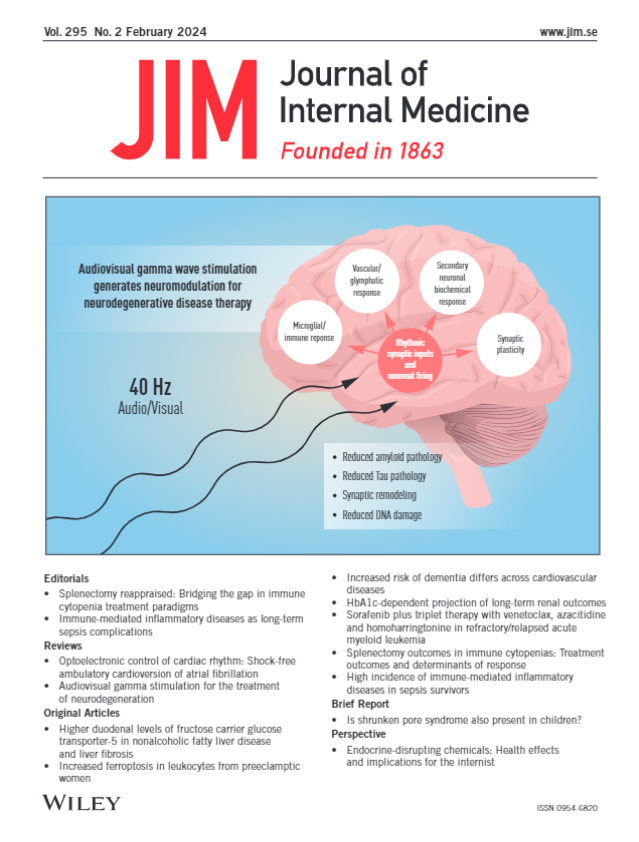Soluble urokinase plasminogen activator receptor and interleukin-6 improves prediction of all-cause mortality and major adverse cardiovascular events in Type 1 diabetes
Abstract
Background
Type 1 diabetes (T1D) increases premature mortality risk, with cardiovascular disease being the leading cause. Chronic inflammation may play a role. Associations between inflammatory biomarkers and mortality are not well-known in T1D.
Methods
We evaluated a prospective clinical cohort with T1D without known cardiovascular disease. The inflammatory biomarkers soluble-urokinase-plasminogen-activator-receptor (suPAR) and interleukin-6 (IL-6) were measured. Patients were stratified by elevated/low suPAR or IL-6, or simultaneously elevated suPAR and IL-6. Primary and secondary endpoints were all-cause mortality and major adverse cardiovascular events (MACE), respectively. Cox models were adjusted for 10 Steno T1 Risk Engine variables and inflammatory biomarkers. Net reclassification improvement (NRI) and C-statistics were calculated.
Results
Among 962 participants (52% male, median age 50, median follow-up 13.1 years), mortality was higher in patients with elevated inflammation: 31% for elevated versus 9% for low suPAR; 30% for elevated versus 11% for low IL-6; and 50% for simultaneously elevated suPAR and IL-6 versus 5% for low suPAR and IL-6. In fully adjusted models, elevated inflammation was associated with mortality (hazard ratios [95% confidence intervals]: suPAR 2.0 [1.4–3.0, p < 0.001], IL-6 1.8 [1.3–2.6; p = 0.001], and combined 4.0 [2.3–7.2, p < 0.001]) and MACE (suPAR 1.9 [1.4–2.6, p < 0.001], IL-6 1.4 [1.0–1.8, p = 0.034], and combined 2.6 [1.7–4.1, p < 0.001]). Adding suPAR, IL-6, and their combination to the Steno T1 Risk Engine improved NRI for mortality by 61%, 53%, and 84%, respectively, whereas C-statistics improved from 0.808 to 0.829, 0.826, and 0.881, respectively.
Conclusions
suPAR, IL-6, and especially their combination independently predicts all-cause mortality and MACE in T1D without known cardiovascular disease.


 求助内容:
求助内容: 应助结果提醒方式:
应助结果提醒方式:


